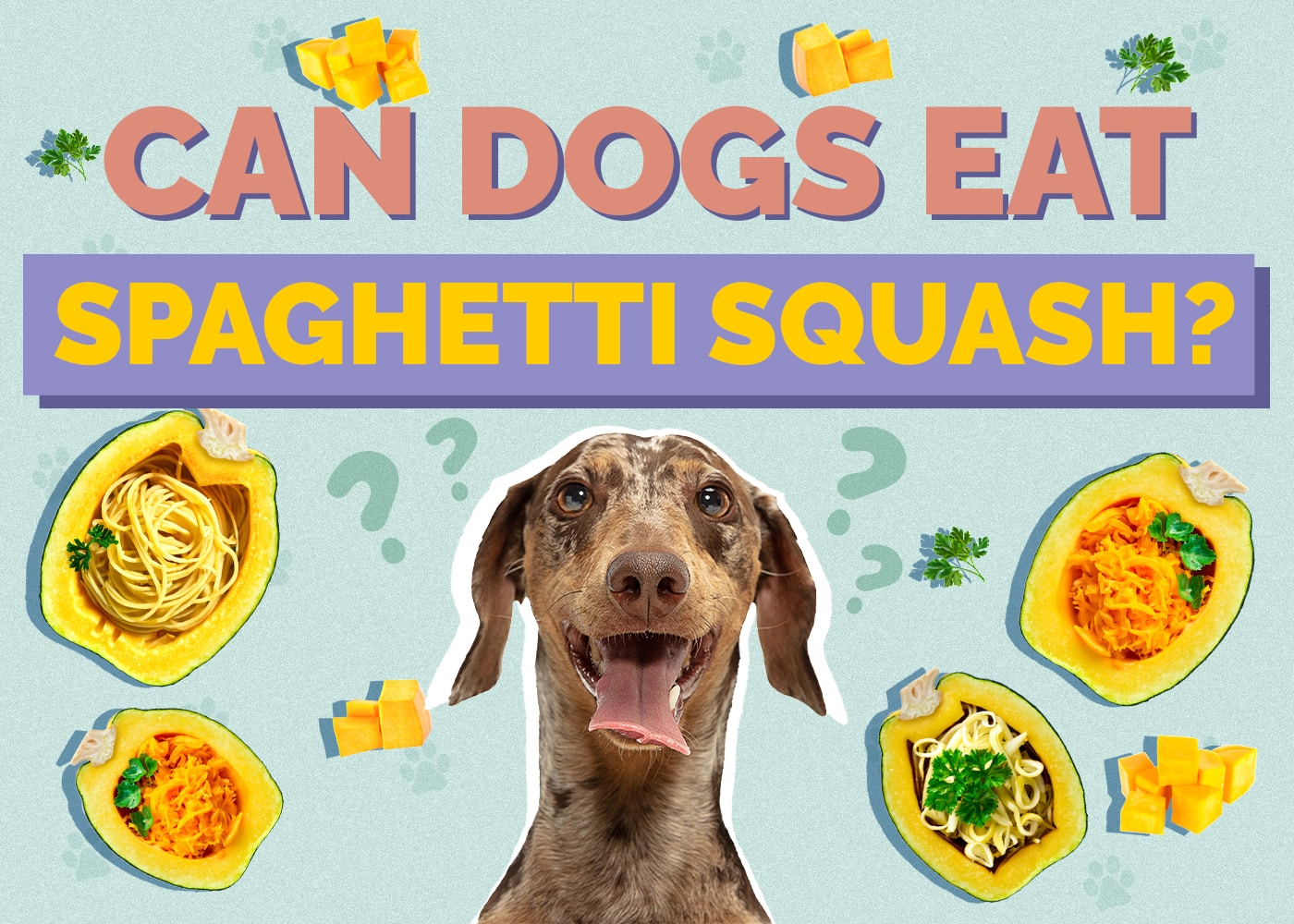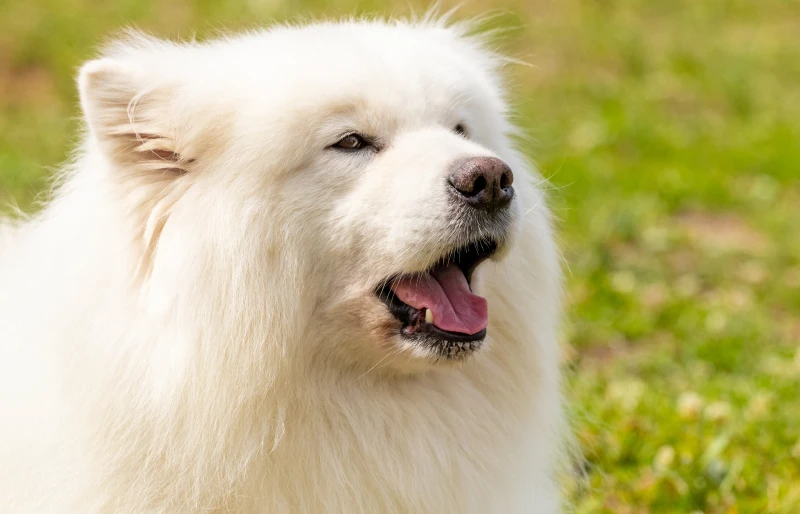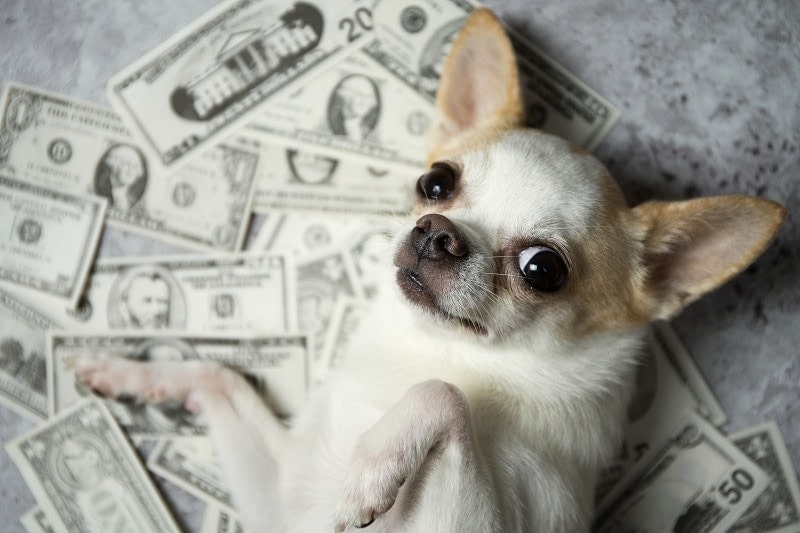Can Dogs Eat Spaghetti Squash? Vet Approved Facts & FAQ

Updated on

Spaghetti squash is a winter vegetable often prepared as a pasta substitute, making it a popular healthier alternative. But is this vegetable one that you can share with your canine friend? Yes, dogs can eat spaghetti squash with the correct preparation. It’s easy to prepare and is packed with nutritional benefits making it a great addition to your dog’s diet.
Is Spaghetti Squash Good for Dogs?
Spaghetti squash is a safe and healthy vegetable to add to your dog’s balanced diet. It is high in fiber, which helps support your dog’s digestive health, and is low in calories and carbohydrates. The squash is also packed with vitamins, including vitamin B6, vitamin C, and vitamin A. It also includes beneficial minerals such as magnesium, folate, calcium, potassium, and beta-carotene. These vitamins and minerals provide many health benefits, including:
- Healthy and shiny coat
- Healthy immune system
- Healthy eyes
- Inflammation reduction
- Skin hydration
- Stronger kidneys, nerves, and muscles
Can Dogs Eat Spaghetti Squash Seeds?
It is best to remove the seeds before offering your dog spaghetti squash since they can be a choking hazard, especially for small breed dogs, or they can cause a blockage in the digestive system if they eat too much. However, if your dog eats a few seeds, they generally shouldn’t cause harm because all squash seeds are nutritious and edible.

Can Dogs Eat All Types of Squash?
All types of squash can be eaten by dogs, which is great because there are so many varieties. Again, you must remove the seeds and prepare them correctly for your dog to enjoy safely. The best squash to feed your dog are pumpkin, butternut, acorn squash, and zucchini, the most easily digested squash.
Your dog should only be offered squash in moderation and in addition to their current diet, not in place of it. Always consult with your veterinarian before adding squash to your dog’s diet.
FAQ (Frequently Asked Questions)
Below, we answer some of the most common questions about dogs eating squash.
Can Dogs Eat Spaghetti Squash Raw?
It’s best not to serve raw spaghetti squash since it can be difficult to digest. However, if you have spaghetti squash in your garden and your dog decides to chew on it, it shouldn’t cause any harm. However, you should monitor your dog to ensure they don’t choke on any seeds and look out for signs of an upset stomach.

How Much Spaghetti Squash Can I Feed My Dog?
Spaghetti squash should not replace meals of your dog’s already balanced diet but serve as an additional snack or topper. About one cup of spaghetti squash a week should be okay, but always talk to your veterinarian before adding new food. You should offer your dog only a small amount the first time to see if they enjoy it. From there, you can slowly increase the amount you feed you add to your dog’s meal.
How Can I Safely Give Spaghetti Squash to My Dog?
The best way to serve spaghetti squash to your dog is cooked, unseasoned, and with the rind and seeds removed. Never cook the squash with onions and garlic since they are toxic to your dog. Now, there are a few ways you can cook it for your dog:
- You can slice it in half, scoop out the seeds, and pop it in the oven. Then use a fork to shred the flesh and add it to your dog’s food as a topper or mix it with your dog’s kibble.
- You can steam spaghetti squash and serve it the same way as roasted squash.
- You can make a puree that you can freeze into ice cubes for a puzzle feeder.
- Spaghetti squash can also be cooked in the microwave for about 10 minutes for a quick addition to your dog meal.
- Air fryers are all the rage these days, and spaghetti squash can be prepared in these too.
Conclusion
Spaghetti squash can be a healthy and tasty addition to your dog’s balanced diet. Your dog may love the texture and taste, but it needs to be served plain with no seasoning, and the rind and seeds should be removed. Spaghetti squash is high in fiber, making it a great supplement for dogs suffering from constipation. It includes many vitamins and minerals to boost your pup’s immune system and overall health. Remember, it should only be served as a treat, not as a meal replacement.













